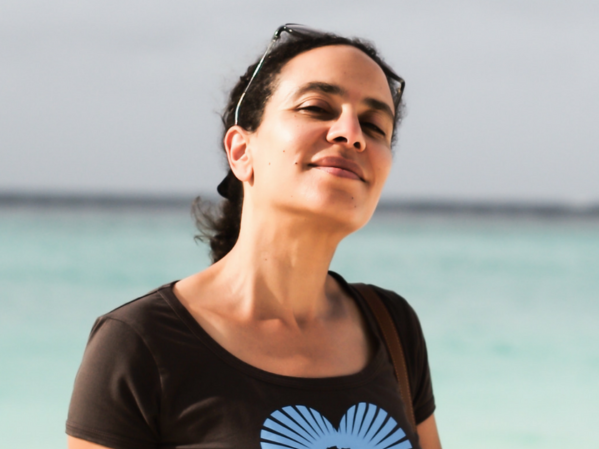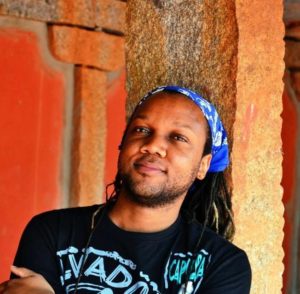
With alarming alacrity and frequency, I get a message via email or on social media from a young person that reads something like, “Dear Mr Huchu, I am a writer from _____, and I would like you to be my mentor….” I confess that, initially, this was a source of some bafflement and bemusement for me. And so, often, with regret and embarrassment, I would write back apologizing to the said young person that I was too busy writing, trying to survive and, generally, enmeshed in activities of daily living to be able to give them the time, attention and care they sought. Often, I would recommend reading, yes, that very mundane and old fashioned solitary activity, as the ultimate elixir for the writerly life they so desperately sought. Sometimes I would get a polite thank-you back; other times, they would persist; but from a great majority, I would hear nothing back.
I can understand how in the age of the MFA and the obvious success of its graduates, young writers who are unable to enter such courses might seek some sort of apprenticeship and benediction from an “established writer,” but as a dude who knew nothing of such things, until long after he was first published, I argue there is an older, better path for young writers to follow. Picture Tendai Huchu as a young man: short hair, incredible acne, dubious taste in clothes, skinny, perpetually horny, impulsive and shallow. Young Huchu knew no writers to speak of, was unaware of the existence of things called literary festivals where one could see them in the flesh, had limited access to the Internet (and when he did log on—avert thine eyes, dear reader—you could be sure it was not to search for things literary). Instead, he got hooked on Dostoevsky and the Russians; read (with limited comprehension) the existentialists, Camus, Sartre, et al; was seduced by Zola, Hugo and Dumas; somehow wound up reading contemporary Brits like David Mitchell and Jon McGregor; kept a well-thumbed copy of Wole Soyinka’s Ake in his garret; and devoured books—one or two a week, sometimes three—with a voracious appetite. Young Huchu produced a lot of fucking crap in those days, and he still, without shame, continues to write crap today unworthy of those great mentors of his. I hope you get the picture, dear reader: most of these mentors are dead and of the living he’s not met most, and of the few he has met, it only happened long after he was published.
What is clear is that in those days, I read more words than I ever put to paper. That remains the case today. I made mistakes, as I still do, but I had my apprenticeship in libraries and from Waterstones and second-hand book stores. I never spoke to a single practicing writer in all that time. I knew no one. But I wasn’t alone! Three rejected manuscripts later, a temporal leap of some eight years, I was in Borders at Fort Kinnaird in Edinburgh, scavenging cheap books for 99p in their closing down sale, when I chanced across a copy of In Dependence by a woman called Sarah Ladipo Manyika. By virtue of her last name, I was certain she was Zimbabwean, and so I bought it. That turned out to be the best literary deal I’ve ever struck, and if you stick with me, dear reader, I will tell you why.
Sarah Ladipo Manyika, as it turns out, was not Zimbabwean, but Nigerian. I’d been duped, Borders was bust, and I had no way of recouping my 99p. So, I set about reading this intriguing post-independence interracial love affair. I was struck by the crisp, polished prose, the deft characterization, perfect pacing, the voice, and overall balance of the novel. And then I heard the voice in my head: I knew there was something not quite right about Dumi the very first time I ever laid eyes on him. That was the first line of the book that would eventually be titled The Hairdresser of Harare. If this faux Zimbo had taken my 99p, then I was well within my rights to steal her shit, too, right? Doomed love affair, anyone? And so, I set down to write my novel, using Manyika’s text as a metronome to regulate my own story. I would write two or three chapters of my own and reward myself by reading one of hers. Right through to the end, I wrote The Hairdresser of Harare dipping in and out of the rich text that is In Dependence.
Sarah Ladipo Manyika knew nothing of my existence. I didn’t even know I could Google her and ask her to be my mentor, but, I swear, she held my hand and taped every stroke of that keyboard with me. Every single character. And when I was done, the universe has a great sense of humor because it turns out the first publisher of The Hairdresser, Weaver Press in Harare, was also the publisher of the Zimbabwean edition of Manyika’s In Dependence. Now, the limited market in Zimbabwe means publishers there seldom buy rights to works from outside the country, so how or why they published this particular book remains a mystery to me to this day.
Post publication, circa 2010, I did finally get my mentor’s email, and wrote to thank her for the fairy dust she’d sprinkled over my head. She sent a gracious email back, and I can only imagine what bafflement and bemusement she must have felt in this correspondence. Seven years later, I met her, in the flesh, for the first and only time, at the Ake Festival in Nigeria.
*
Our encounter there was brief, and I confess to blabbering and, generally, fanboying out as she looked upon me with what could only be described as a certain benign patience and, no doubt, some level of amusement. My mentor has not read any of my unpublished work, critiqued me or anything like that. She’s not introduced me to any publishers or agents, and if she’s helped my career along in some way, then I know nothing about it. But she gave me In Dependence, my independence, and that was enough. This is a gift I can never hope to repay. And my debt continues to mount with the shit I pinched from her recent novella Like a Mule Bringing Ice Cream to the Sun: she’s the gift that keeps on giving.
Dear reader, mate, because this is the Internet, I’m really going to labour the fucking point by saying it should be pretty obvious right now that my relationship is less with Sarah Ladipo Manyika the person and more (intensely even) with her work.
So now you know my story. And if, like I was then, you’re taking your first steps towards publication, I know the torments you’re going through. Your nights of wild despair. Your underappreciated genius. Your thoughts on how biased, corrupt and fucked-up the world of publishing is. I truly understand. I wish I could hold your hand and be your mentor, but the truth is, I have a lot of shit going on, you know, trying to write my own stories, working to pay the bills, maintaining relationships, generally existing in a world that doesn’t give a crap. I really wish I had the time to help you, but, short of offering my own work, I’m unable to, and this isn’t because I’m an arsehole, or I’ve “made it” and I don’t care for budding writers starting out. On the contrary, we’re in the same fucking boat, dude. We both stare at the white blank page and are struck by that overwhelming sense of paralysis. The rejection slips keep coming like ice picks to the heart. But by some strange impulse, dear reader, we keep striving, we keep trying. I may not be able to mentor you, but I can at least recommend you bypass the bullshit and try the same mentors I have. They never ignore your emails or tell you no. They are available for you 24/7. All you have to do is to open the pages of their books. Their names: Richard Brautigan, Virginia Woolf, David Foster Wallace, Roberto Bolano, Geoff Ryman, Aminatta Forna, China Mieville, Horace McCoy—this list really could go on and on, so I’ll stop now. . . oh, and, wait a minute, don’t forget Sarah Ladipo Manyika.
About the Author:
 Tendai Huchu’s first novel The Hairdresser of Harare was released in 2010 to critical acclaim, and has been translated into several languages. Between projects, he translates fiction between the Shona and English languages. His last novel is The Maestro, The Magistrate & The Mathematician. Find him @TendaiHuchu or on www.tendaihuchu.com.
Tendai Huchu’s first novel The Hairdresser of Harare was released in 2010 to critical acclaim, and has been translated into several languages. Between projects, he translates fiction between the Shona and English languages. His last novel is The Maestro, The Magistrate & The Mathematician. Find him @TendaiHuchu or on www.tendaihuchu.com.









Thoughts: On Writing, Mentorship and the “Laziness” of Young Writers. – Femi Ojosu Writes April 09, 2020 14:23
[…] brouhaha on reviews, mentorship, the laziness of young writers, and gatekeeping, I read an essay in Brittle Paper written by Tendai Huchu detailing his love affair with Sarah Ladipo Manyika, how her book in […]